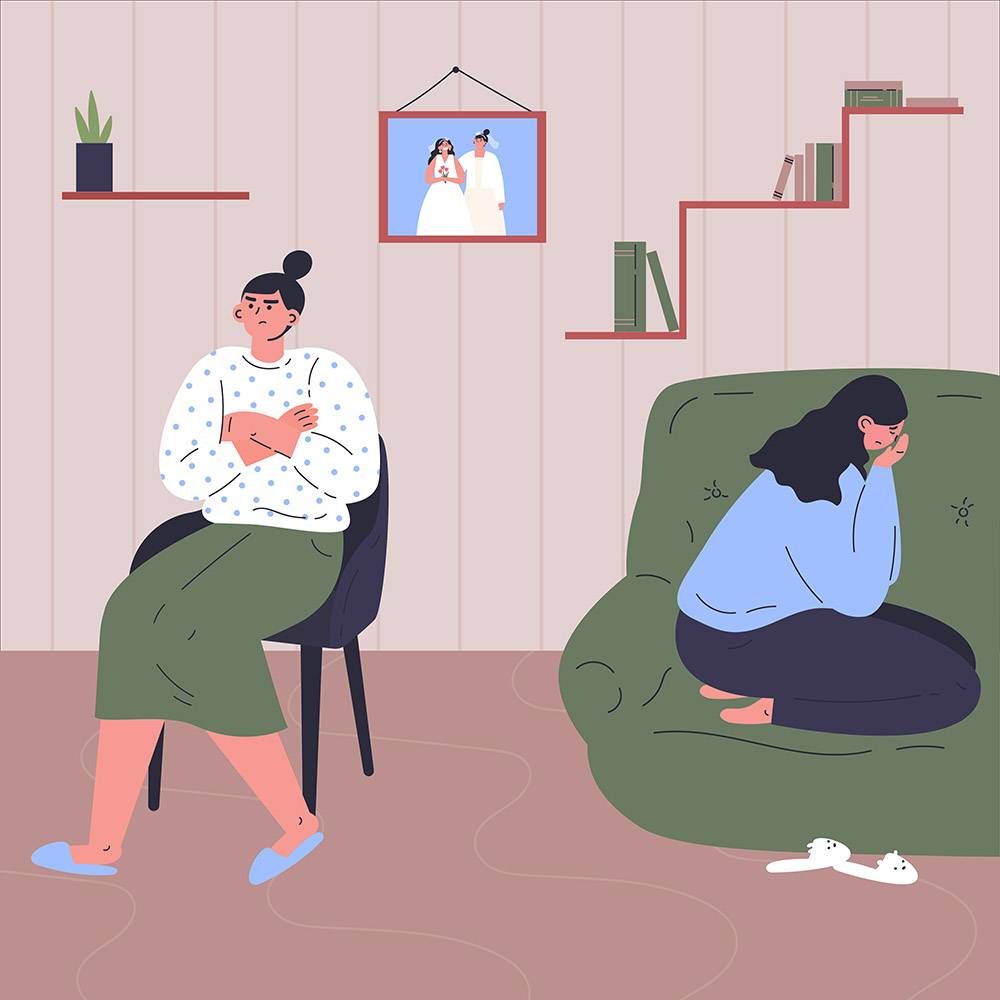How Couples Can Keep the Peace Between Therapy Sessions - Rewire.org

Couples therapy sessions can be intense.
Sometimes the information we're made aware of during a session can be extremely overwhelming, and when it ends, we have the urge to retreat and temporarily withdraw from each other. Or we continue the conversation, only to have it spiral out of control.
In heated situations, it can be difficult to continue the typical everyday interactions we share with our partners, which can leave us feeling frustrated and disheartened.
Why we feel the need to withdraw
In couples therapy, both partners purposefully explore the components of their relationship that aren't working and actively discuss the things they disagree on.
Talking openly about your communication style, lack of trust or physical intimacy puts an uncomfortable spotlight on these issues, said Atlanta-based Licensed Professional Counselor Mikela Hallmark. It can trigger feelings of frustration, anger and anxiety.
For conflict-avoidant individuals who didn't grow up experiencing a ton of conflict or didn't learn healthy ways of managing it, facing conflict head-on during therapy can be a lot to handle.
"Their natural tendency after the conflict is to back off and go into their shell," Hallmark said.
Coping with emotional difficulties
When we experience emotional difficulties, our brains register them as a threat — particularly when it involves an intimate partner or attachment figure, said Kate Engler, a Chicago-based Licensed Marriage and Family Therapist.
Our nervous system takes action to alleviate the threat, and the brain chooses the action most likely to keep us safe. Often, between the "Four Fs:" fight, flight, freeze or fawn.
While fight and flight are often discussed, freeze and fawn are lesser-known responses to threat.

Someone experiencing freeze might check out cognitively and emotionally, or be physically immobilized by the stress they're feeling, while fawn typically shows up as extreme people-pleasing or codependency. Engler said we're often drawn to one of these responses when dealing with threatening situations based on past experiences.
Developing a plan before you go to couples therapy together can help to keep the peace during stressful times.
"The before part is critical for the same reason we do fire drills before a fire breaks out," Engler said. "You'll be more likely to follow the plan if practiced when calm, even if your threat system is already activated."
Do an internal check-in
After therapy, check in with yourself to understand where you're at on the F scale.
"We all have at least one, and usually, several tells," Engler said.
"It may be a racing heart, flushed face, clenched fists, fuzzy thinking or a desire to run screaming from the room or zone out on your phone, and it's our responsibility to know ourselves and manage these responses."
It's helpful to check in with your partner to determine where they are in the moment, too. This will help determine how you can reconnect safely after therapy — whether it's by taking some time apart to process your thoughts individually, lighten the mood by playing video games together or continue with the conversation when you get home.
"When one or both members of the couple are in any version of the 'Four Fs,' nothing useful will happen," Engler said.
Post-couples therapy breaks are okay
It's okay to take a break after a tough couples therapy session, but it's helpful to communicate that with your partner first so they're not left hanging or feeling abandoned.
Hallmark recommends using this time productively to self-soothe.
"Try deep breathing meditation, go exercise, or take a relaxing bath — anything that's going to help your body experience some calm from the stress of having been in that session," Hallmark said.
"Be careful that it's not something that causes you to check out of your reality, like watching hours of television."
Continuing conversations outside of therapy
If you decide to approach a difficult conversation together outside of therapy, have a plan for how to navigate it if it escalates. Use a code word, for example.
"If you call the time-out, it's up to you to let your partner know when you'll be ready to come back to the conversation and then actually do it," Engler said.
She recommends couples start out with a thirty-minute break to allow their body's stress response to complete.
"If you've attempted a conversation more than twice to no avail, it's probably best to wait until your next session to discuss," Engler said.
Keep a gratitude journal
It's easy to focus on the negatives in a tough time. Hallmark recommends writing out the things you love or are grateful for about your partner and sharing them, which can help change the ratio. For every one complaint, share five positives.
"Sharing a complaint can be tough when there isn't also recognition of the positive ways your partner is working towards building the relationship," she said.
Learning healthy and effective communication skills takes patience and practice, and Engler stresses that slip-ups between couples during stressful times are normal and understandable.
"It doesn't mean anything is wrong or bad. It's just good information about where the really prickly parts are in the relationship," Engler said.
Comments
Post a Comment